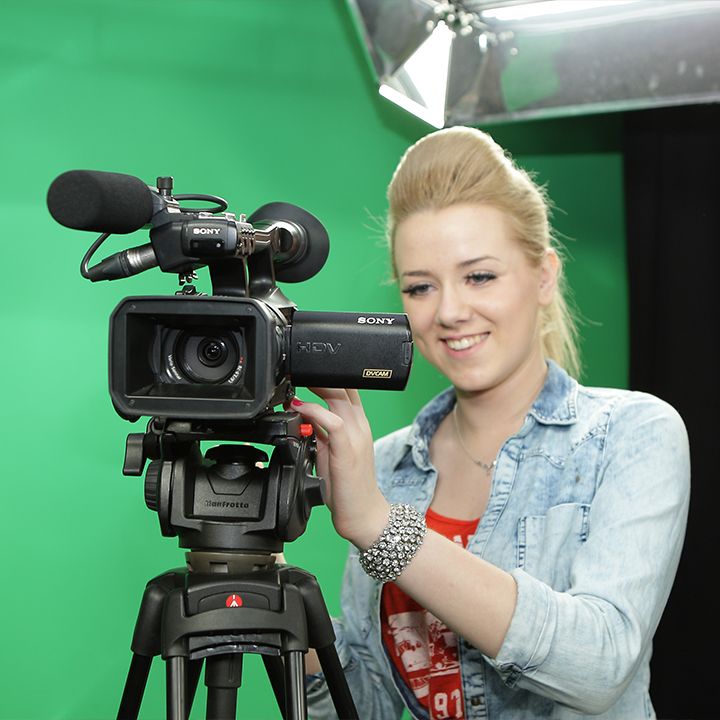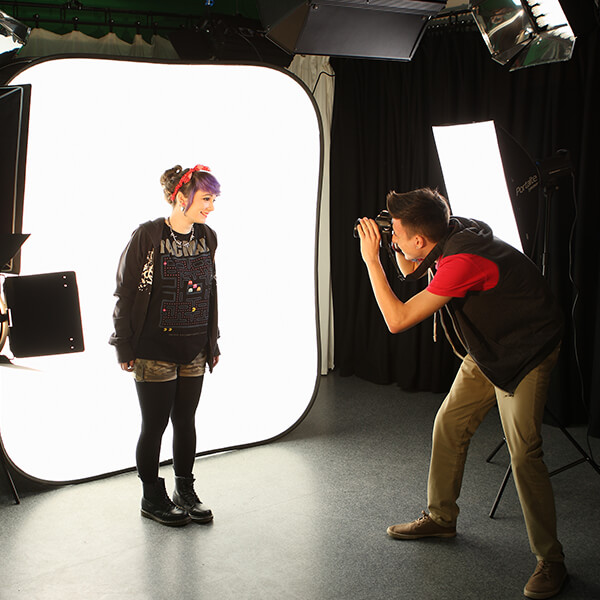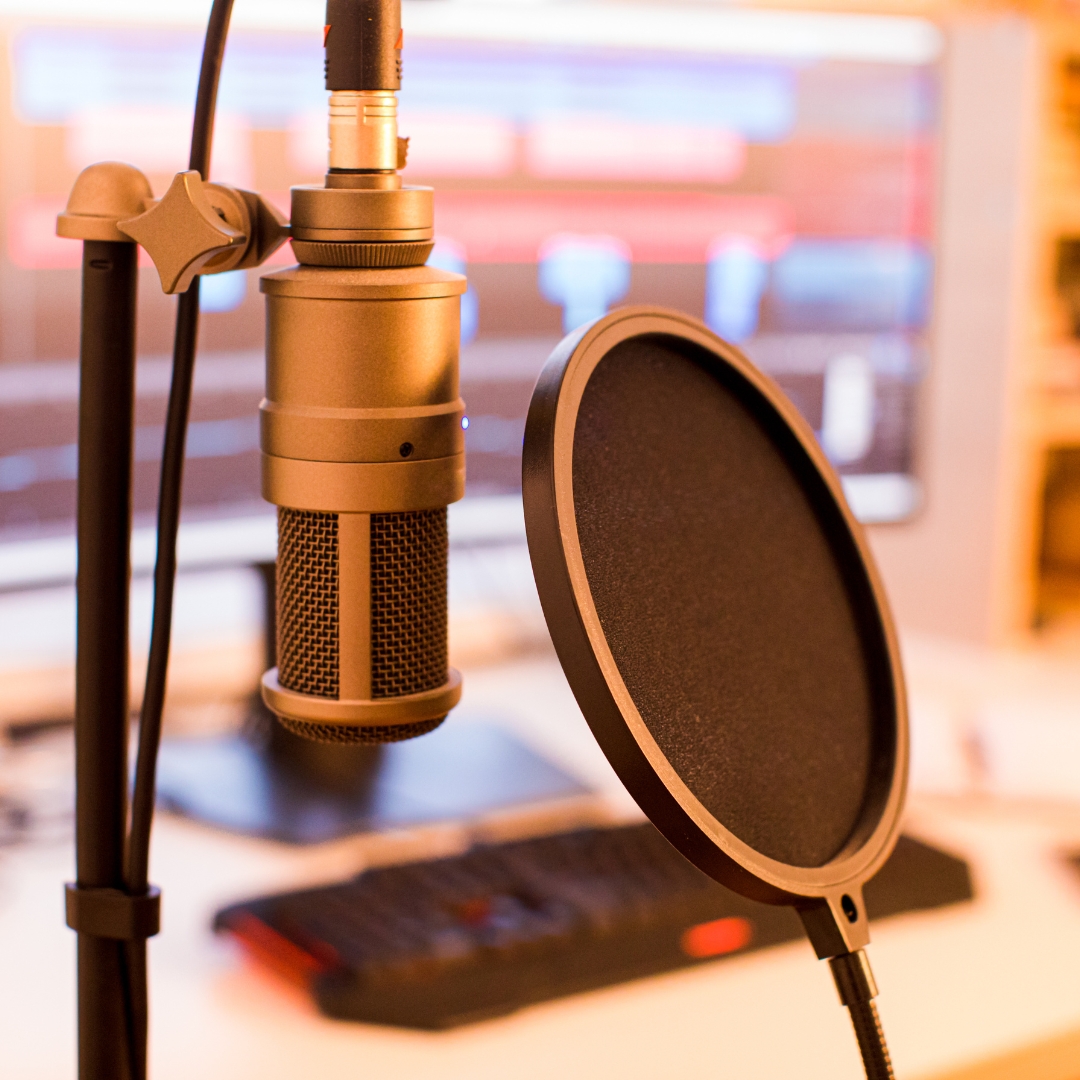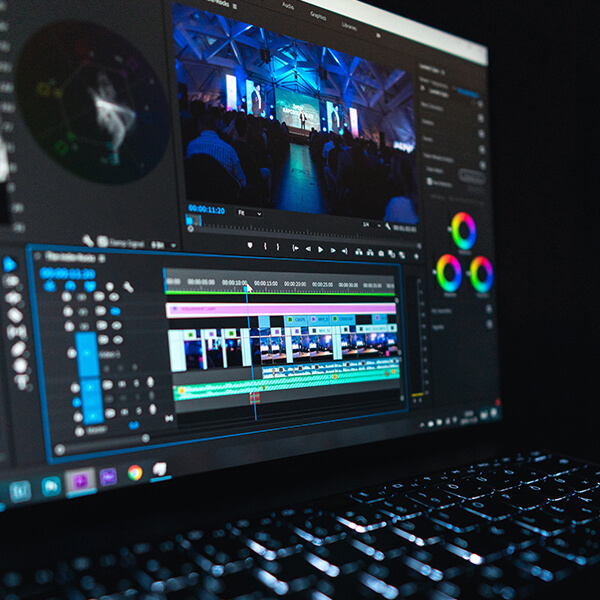Course overview
Students undertaking this Technical Qualification will be 16–18 years old, and in full-time education. The typical student has a clear idea about the industry sector in which they wish to pursue a career an idea of the type of job role they would like to explore as a career.
The course gives you the opportunity to learn core principles of the media industry and essential theories, alongside developing your professional and technical skills. This will be balanced with practical work in our studios and creative classrooms to build further technical skills. You will get the chance to work in two forms of media including, but not limited to, moving/still image, audio and written word. This will allow you to specialise in your area of interest within the Content Creation and Media Production sector and study topics such as:
You will specialise in:
• Generate ideas for content development for different platforms.
• Plan the production of the required content for different platforms (including but not exclusive to moving/still image, audio and written word).
• Create and deliver the required content for the chosen platforms and/or venues (including but not exclusive to moving/still image, audio and written word) coordinating with others where appropriate.
• Evaluate the extent to which the content and plan meet objectives taking on board feedback.
The industrial placement is a fantastic part of the course where you will spend the equivalent of 315 hours over the 2 years working alongside industry professionals in the areas you are considering for future careers.
This course ensures you can rival all students with a unique blend of both academic and industry experience and a work placement giving you the real-world skills you require for future employment.
This specialist course will also allow you to develop literacy and numeracy skills, as well as a number of transferable skills in communication (working with peers, clients and customers) and undertake research and live project development work.
Topics
Topics you will study include:
• The creative economy; exploring the different roles within the industry.
• The individual in the creative industries: exploring the skills required in the industry.
• Cultural context and media language: Understanding the influence of different social, political, technological and economic factors on culture and creativity.
• Audience and consumer needs: Understanding audience and consumer needs and interests.
• Legislation and regulation requirements.
• Professionalism and ethics: An understanding of professional standards and conduct in the workplace.
• Equality, diversity and inclusion requirements: An understanding of equality, diversity and inclusion requirements.
• Research skills: Reliability and accuracy of sources, including an understanding of how to plan research.
• Project methodology and administration: Awareness of different project tools to manage projects including digital tools.
Job opportunities after this course
• Camera Operator
• Editor
• Radio Producer
• Researcher
• Production Assistant
...and so much more!
You will have exposure to a range of practical activities through workshops, broadcasts, live events and real work experience to develop practical skills and build theoretical portfolios to prepare you for industry.
Further study options after this course
Students could progress to higher-level Apprenticeships such as the Level 4 Postproduction Technical Operator, Assistant Technical Director (visual effects), Media Production Co-Ordinator and Assistant Recording Technician depending on their skills or experience.
Where students may not have access to an Apprenticeship or would prefer a more academic route, they could progress to relevant Higher National Certificate (HNC) or Higher National Diploma (HND) programmes or degree programmes. Students must check the entry requirements for each degree programme with the relevant higher education provider.
Entry requirements
Applicants require 5 x GCSEs at grade 5 and above, including Maths and English. A media GCSE is also desirable.
Our entry requirements are in place to support our students in achieving the qualifications they have chosen to study. In addition to the entry requirements, all students will be regularly assessed by East Durham College at an early stage in their study programme. This is to ensure that students are enrolled onto courses which suits their abilities – following assessment, there may be occasions when students are transferred to a relevant course at a higher or lower level in order to ensure they are enrolled on to the right course for them to achieve and progress.
Entry onto any course at EDC may have entry requirements in addition to exam results; this includes but is not limited to DBS checks, references, fitness to practice and at times physical requirements to be capable of achieving the practical elements of the course without assistance. Entry onto any course at East Durham College is subject to final approval from the Assistant Principal.
How is this course assessed?
Assessment is broken into 3 key areas:
• Industrial Placement - completion of 315hours across years 1 & 2
• Formal Exams - made up of 1 written examination, and a practical employer set project. (Year 1 only)
• Occupational Specialism component, 1 practical based assessment. (Year 2)
When does the course start?
September 2025
Length of course
2 years, full-time.
Fees & Funding
Please read our Course Fees & Funding page.How to apply
To apply online for this course, please click on the 'Apply' button at the top/bottom of this page.
Alternatively, if you need assistance with your application or you would like to apply over the phone or using a paper-based application form, please call Student Services on 0191 743 0149.
If you're not quite ready to apply for this course and would like some more information or to speak to a member of staff then please click on the 'Enquire' button at the top/bottom of this page.







